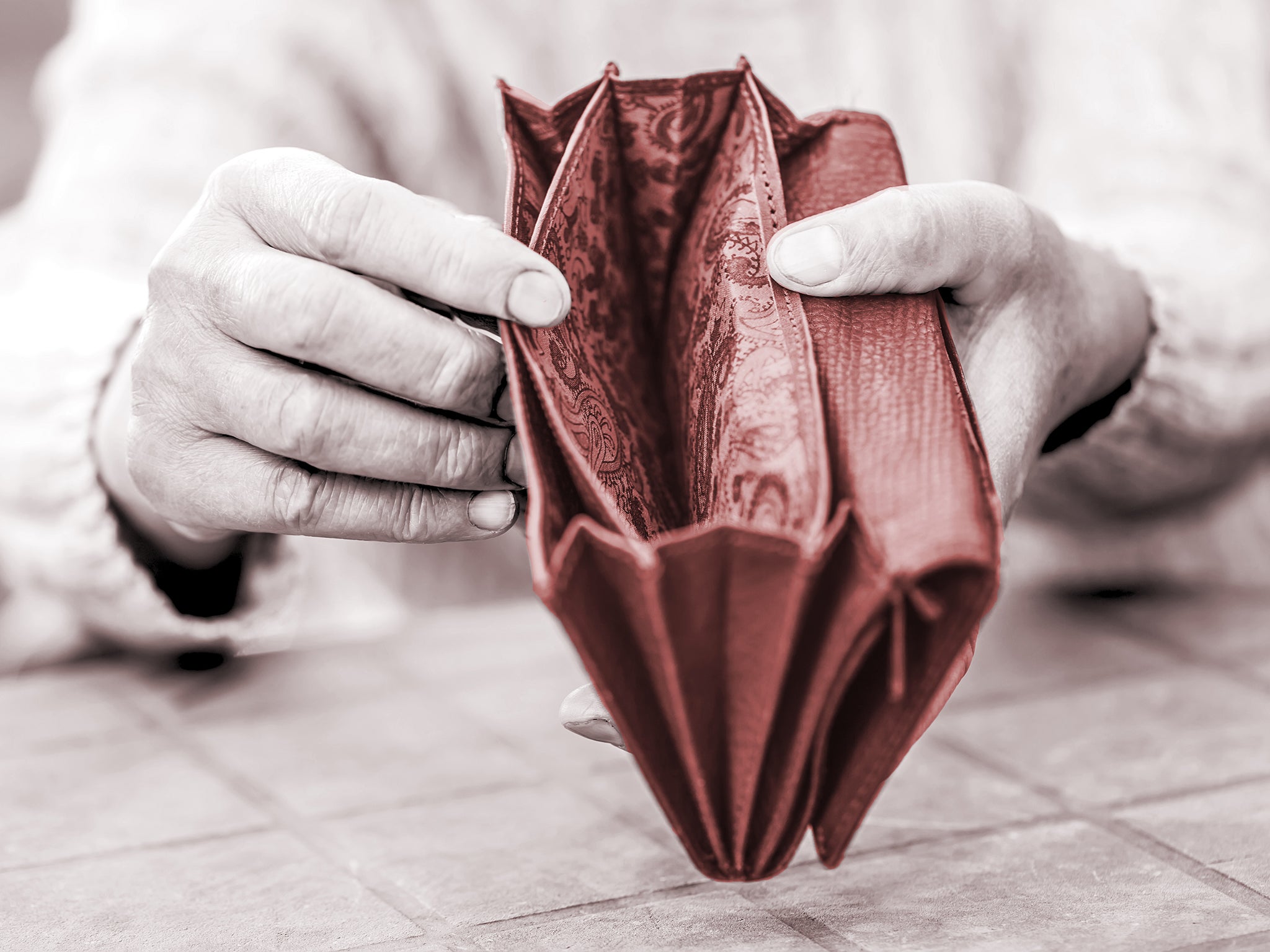How to spot the signs of financial and economic abuse
The law is being extended to protect victims and survivors but could you recognise the signs?

Your support helps us to tell the story
From reproductive rights to climate change to Big Tech, The Independent is on the ground when the story is developing. Whether it's investigating the financials of Elon Musk's pro-Trump PAC or producing our latest documentary, 'The A Word', which shines a light on the American women fighting for reproductive rights, we know how important it is to parse out the facts from the messaging.
At such a critical moment in US history, we need reporters on the ground. Your donation allows us to keep sending journalists to speak to both sides of the story.
The Independent is trusted by Americans across the entire political spectrum. And unlike many other quality news outlets, we choose not to lock Americans out of our reporting and analysis with paywalls. We believe quality journalism should be available to everyone, paid for by those who can afford it.
Your support makes all the difference.Something fantastic happened this week.
After months of campaigning from charities, academics and people who've had direct experience of coercive control, the government announced that post-separation abuse would become a criminal offence. That includes post-separation economic abuse.
This opens up the path to much greater support for people who escape abusive and controlling relationships – and could help them escape the financial abuse that sometimes escalates after separation.
But abuse and control through financial means is hard to understand, sometimes hard even for those experiencing it.
Part of the battle now is to ensure anyone living with this abuse understands the legal protections they will soon have, in addition to legal protections against coercive control within a relationship.
A spokesperson for the charity Surviving Economic Abuse (SEA) says this decision by the government is just the beginning: “Awareness raising continues to be vital. We know that the majority of coercive controlling behaviour is not reported to the police, and many victims do not immediately recognise what is happening to them.”
It’s perhaps never been more important to understand what financial and economic abuse actually is, and what you can do if you suspect it is taking place.
Naming abuse
Women’s Aid defines financial abuse as an aspect of coercive control, part of a pattern of controlling, threatening and degrading behaviour that restricts the victim’s freedom. It happens to both men and women, although the majority of people who experience it are woman.
It usually goes hand in hand with other abusive and controlling behaviours, but can include the perpetrator controlling, limiting and sometimes misusing their partner’s money. Sometimes it includes taking out debts in their victim’s name or running up credit card debts.
Economic abuse describes a wider range of problem behaviours, which can include stopping partners being able to get hold of essentials like clothing or food. It can also include preventing a victim from taking steps to improve their situation like finding work.
Those behaviours can obviously make it harder for a victim to escape an abusive situation. When they do succeed in separating from an abuser, that financial abuse can worsen as the perpetrator tries to still exert control and power.
Post-separation economic abuse can manifest in many different ways. Survivors may find their ex-partner withholds child maintenance payments, sabotages the sale of their formerly shared home, refuses to allow them to re-mortgage onto a more affordable rate or strips away joint assets and savings.
Many victims have also had considerable debts taken out in their name by their abuser and will have to navigate the impact of that on their finances as they begin to rebuild.
Signs of economic abuse
People experiencing economic abuse may not always recognise it as a form of abuse; it can masquerade as simply a “traditional” or even supportive act in the beginning.
SEA spoke to a number of women who had experienced economic abuse and asked what signs friends, colleagues or family could have spotted.
They said warning signs included not having enough money for even basic things; having joint finances but not being able to access the shared account; seeming to be in conflict with a partner over cash and making comments like “he won’t let me spend money on that”.
Signs could also include wearing worn-out clothes or giving up work despite appearing to enjoy it. You can find a full list of their red flags on the SEA website.
Supporting survivors
Banks have made huge steps in providing more effective support to victims and survivors of domestic abuse.
In 2018, UK Finance set out a financial abuse code of practice for banks. It means that financial institutions that have signed up to it will train their workforce in providing support to anyone experiencing financial abuse.
Victims and survivors will not be expected to repeat their story multiple times to the same organisation. And those banks will help the individual to regain control of their finances.
But it can be hard for friends and loved ones to recognise what is going on – and to raise any concerns that they do have.
Dr Nicola Sharp-Jeffs OBE, founder and CEO of SEA, says that approaching a possible victim and expressing concern is essential.
“The first thing is to reach out to them, you can do that in an ‘I’m worried about you, is everything okay?’ way. Perhaps not using the word ‘abuse’ because it might not be what the victim recognises is happening to them.
“But a recognition that they are experiencing behaviours that could be controlling or coercive, and just expressing concern to the victim or survivor means they know you have noticed something.
“That can be really important as an abuser is likely to say ‘you’re confused’ or ‘this is normal’ or ‘I’m caring about you’. So that outside perspective of someone picking up on things can help them trust their instincts.”
One thing no one should do, she says, is try to rush them to leave their partner. “It’s something victim and survivors do in their own time. You should recognise what they are going through and reassure them that help is available and that ‘I am happy to help you access that support’. Reassure them there’s support available and they will know if it’s safe or not.”
Anyone who loves someone who is being victimised in this way will know how frustrating it can feel to see that person remain in a damaging and abusive relationship but Sharp-Jess says they need to be empowered and enabled to leave, not ordered to.
She concludes: “A victim is already being controlled by someone else, it’s important that you’re seeking to support them and not telling them what to do.”
Economic abuse is becoming better understood by banks, by the police and by the UK courts. But with one in five adults in the UK experiencing economic abuse at some point in their lives, according to SEA, the next step is to ensure it’s better understood throughout society.
Economic abuse often occurs alongside other kinds of abuse. If you are in immediate danger, call the police on 999. If you are not in immediate danger but you are worried about your safety and situation then the National Domestic Abuse Helpline, run by Refuge, can be contacted 24 hours a day on 0808 2000 247


Join our commenting forum
Join thought-provoking conversations, follow other Independent readers and see their replies
Comments